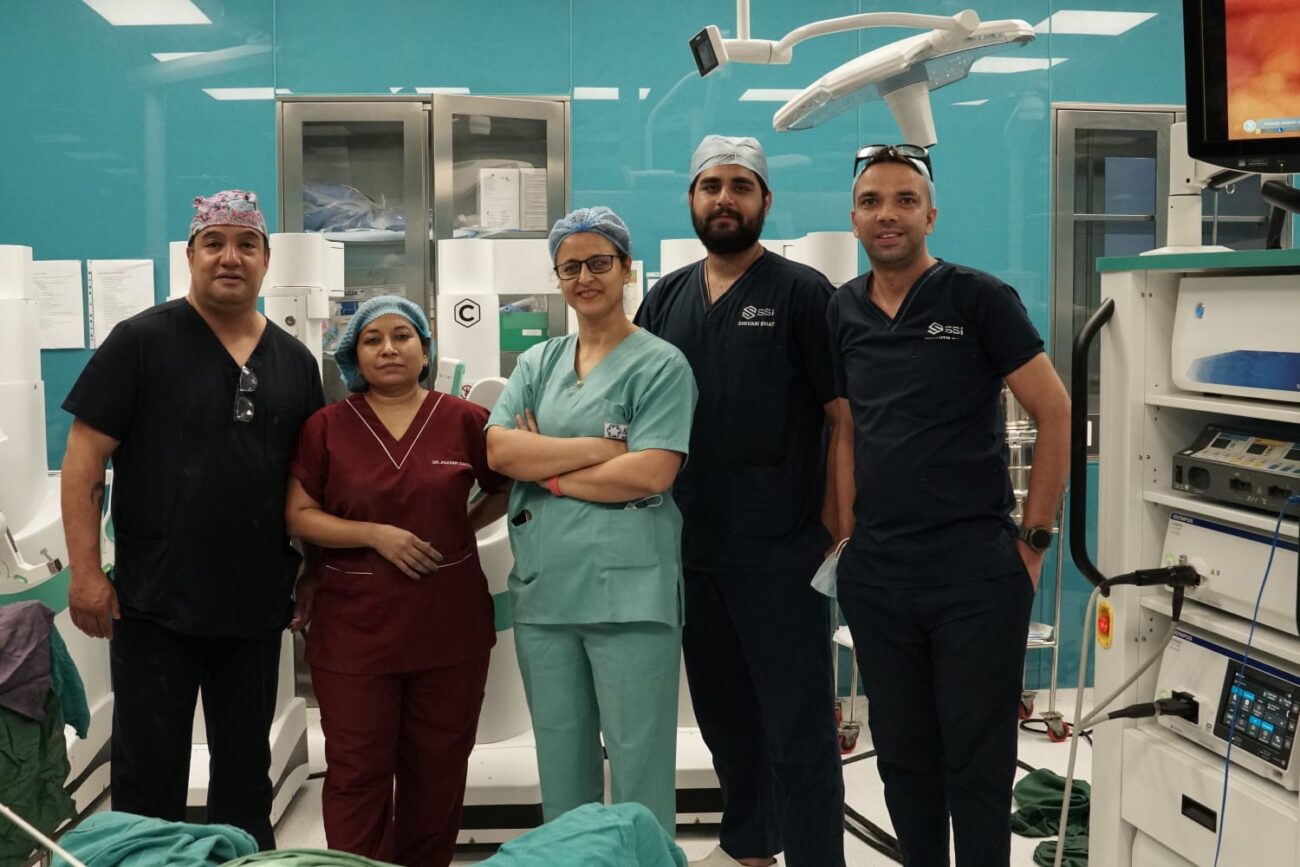Ottobock, German prosthetic company join hands with Orthopaedic surgeon to create bionic prostheses for Indian amputees
Launched the Osseointegration surgery, a life-changing surgical technique, in the country Established Centre of Excellence for prosthetic fitting after osseointegration Dr Aditya Khemka, the only Indian surgeon specialising in Osseointegration presents the results of the surgery with
- Launched the Osseointegration surgery, a life-changing surgical technique, in the country
- Established Centre of Excellence for prosthetic fitting after osseointegration
- Dr Aditya Khemka, the only Indian surgeon specialising in Osseointegration presents the results of the surgery with the first two patients
 Orthopaedic surgeon Dr. Aditya Khemka along with Ottobock, a global leader in prosthetics recently introduced the Osseointegration technology as a disruptive, innovative procedure to help amputees in India return to an active social and economic life. India records a large number of individuals with various disabilities with a roughly 0.62 amputees per thousand population.
Orthopaedic surgeon Dr. Aditya Khemka along with Ottobock, a global leader in prosthetics recently introduced the Osseointegration technology as a disruptive, innovative procedure to help amputees in India return to an active social and economic life. India records a large number of individuals with various disabilities with a roughly 0.62 amputees per thousand population.
Ottobock was chosen by the doctor on the back of its robust 100-year history of med-tech expertise in the global amputation treatment and rehabilitation space. Pioneering the technology for wearable human bionics, the healthcare multinational is committed to improving the lives of its consumers by helping them gain mobility freedom while preventing potential complications
According to recent estimations, India is home to nearly one million individuals who have undergone the amputation surgery. Besides restricted mobility, amputation also causes such individuals – most of whom belong to a younger demographic – to suffer from trauma which also leads to social and economic alienation. This fact increases tenfold the responsibility of all stakeholders –surgeons, clinicians, governments, society – to work towards amputees’ return to active social and economic life.
Osseointegration is a radical procedure where a skeletal connection with the prosthetics is achieved through a titanium implant in the bone of the amputee. This creates an interface that connects directly onto a prosthetic limb. The resulting bionic leg – in which bone and muscle growth around the upper part of the rod and a system of hydraulics, and microprocessors drive the lower limb – allows amputees to control the limb more intuitively, almost naturally.
Mr. Bernard O’Keeffe, Managing Director & Regional President, Asia Pacific, Ottobock added, “Otto Bock is achieving new frontiers in amputation care. In India, we have always tried to use our global experience to find locally suitable solutions while leveraging cutting-edge technology. If after osseointegration, an inexperienced or unskilled healthcare professional fits the prosthetic components, it can lead to an adverse impact on the implant and the outcomes can be damaging for the patient. We, therefore, ensure that we draw from 100 years of our company’s experience and use globally established protocols to fit osseointegration patients with prostheses.”
Speaking on the life-changing potential of the surgical innovation, Dr Aditya Khemka, Orthopaedic Surgeon with super-specialisation in Osseointegration, who also chaired the event, commented, “Osseointegration is a new dimension to the process in which amputation reconstruction is done. The most important and hence a ‘bottleneck’ part of the prosthesis is the socket. The socket is custom made and skill dependent whereas components like knee and foot are prefabricated and standardised. So if the socket is not right, even with the best of components, the prosthesis will not deliver a complete outcome. Osseointegration deletes socket issues leaving no scope for skin break-downs or discomfort. It offers many other benefits like quick removal and wearing of the prosthesis, better ‘feel’ of the ground below due to direct bone contact, etc. The outcome is always improved energy transfer and control of the prosthetic leg restoring mobility in the patient. We are trying to create real bionic amputees here!”



